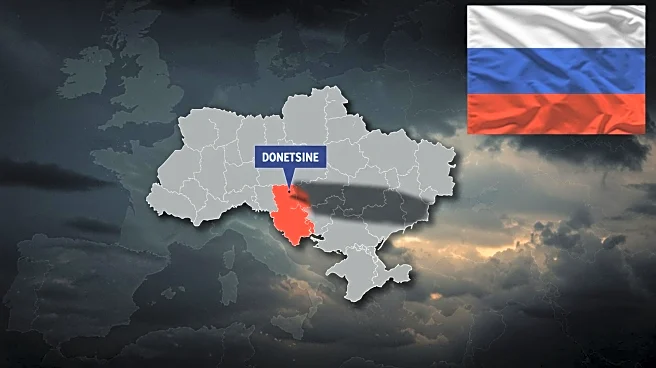What is the story about?
What's Happening?
Russian President Vladimir Putin has reportedly told President Trump that Russian forces could conquer the Donetsk region by October if Ukraine does not concede the territory as part of a peace deal. Despite these claims, Kyiv and U.S. observers note that Russia has failed to take control of Donetsk for over a decade. The Institute for the Study of War highlights the improbability of Russia's success given the fortified Ukrainian defenses and past failures in the region. Ukrainian President Volodymyr Zelensky has rejected the proposal to cede land, emphasizing the resilience of Ukrainian forces.
Why It's Important?
Putin's assertion underscores the ongoing geopolitical tensions and the challenges in resolving the conflict between Russia and Ukraine. The situation has significant implications for international relations, particularly U.S. involvement in supporting Ukraine. The potential for further escalation could impact regional stability and global security, with consequences for diplomatic efforts and military strategies. The resilience of Ukrainian forces highlights the broader struggle for sovereignty and territorial integrity in the face of external aggression.
What's Next?
Negotiations over the fate of Donetsk remain critical, with potential diplomatic efforts to resolve the conflict. The situation may prompt further international involvement, including potential mediation or support for Ukraine. The ongoing military operations and geopolitical dynamics could influence future strategies and alliances, shaping the regional security landscape.
Beyond the Headlines
The conflict in Donetsk reflects broader issues of territorial disputes and the challenges of international diplomacy. It raises questions about the effectiveness of peace negotiations and the role of global powers in conflict resolution. The situation may influence future discussions on international law and the protection of national sovereignty.
















